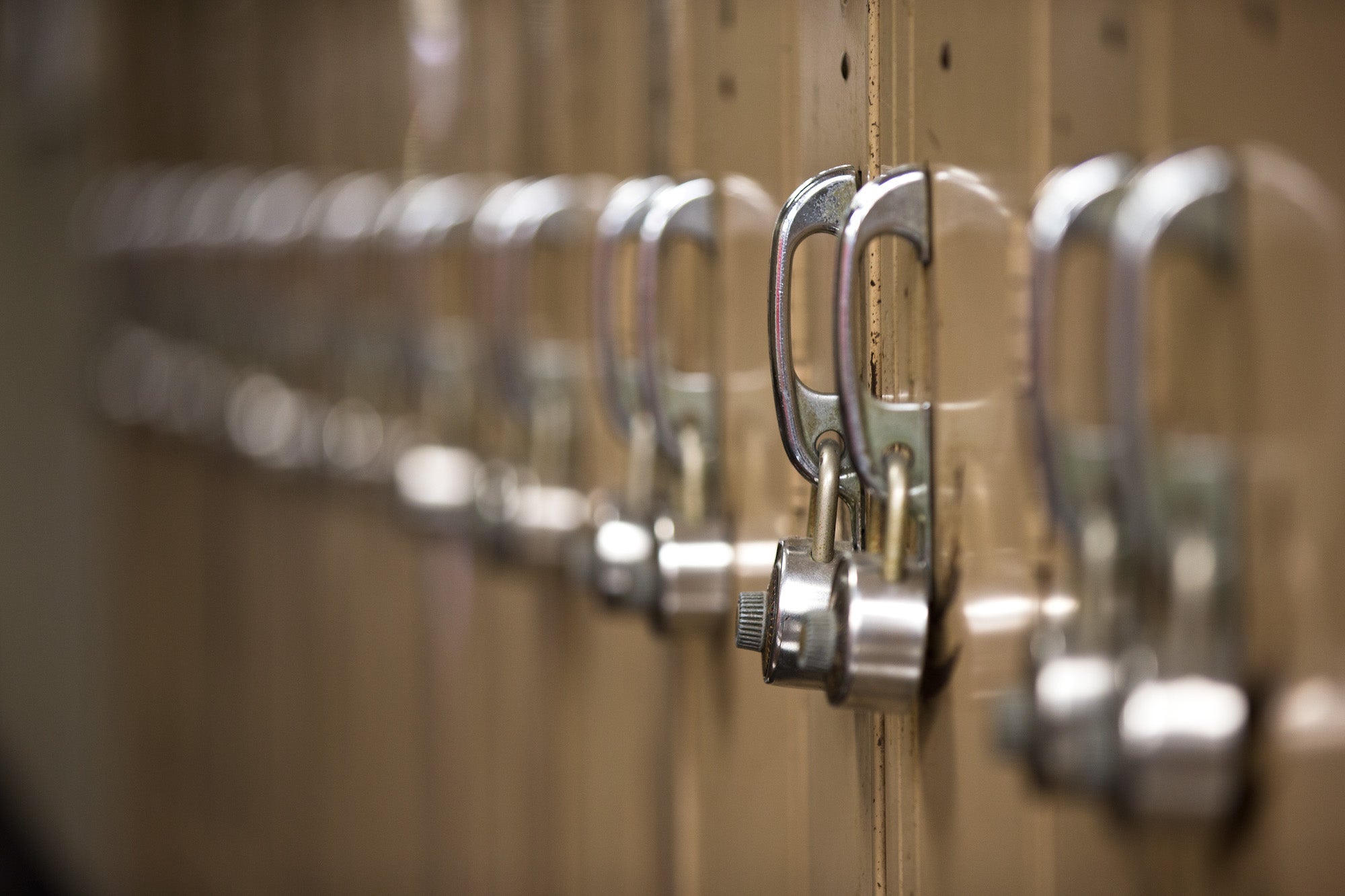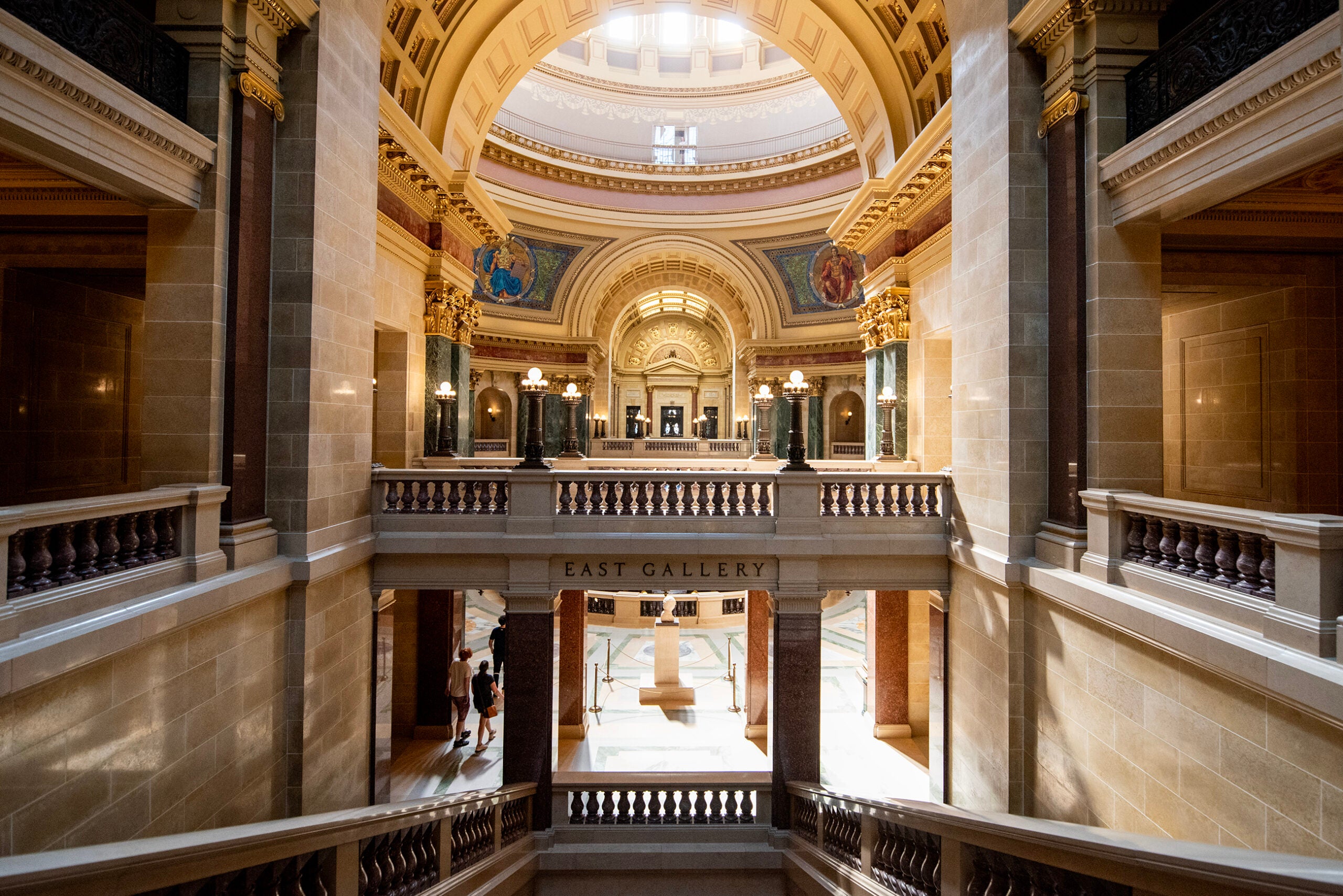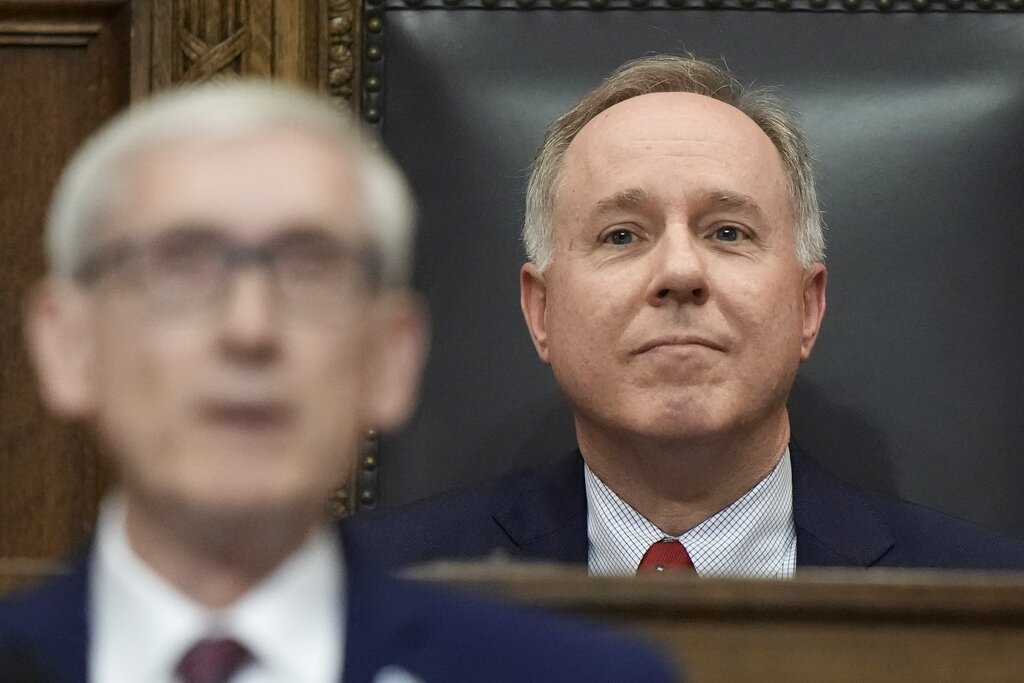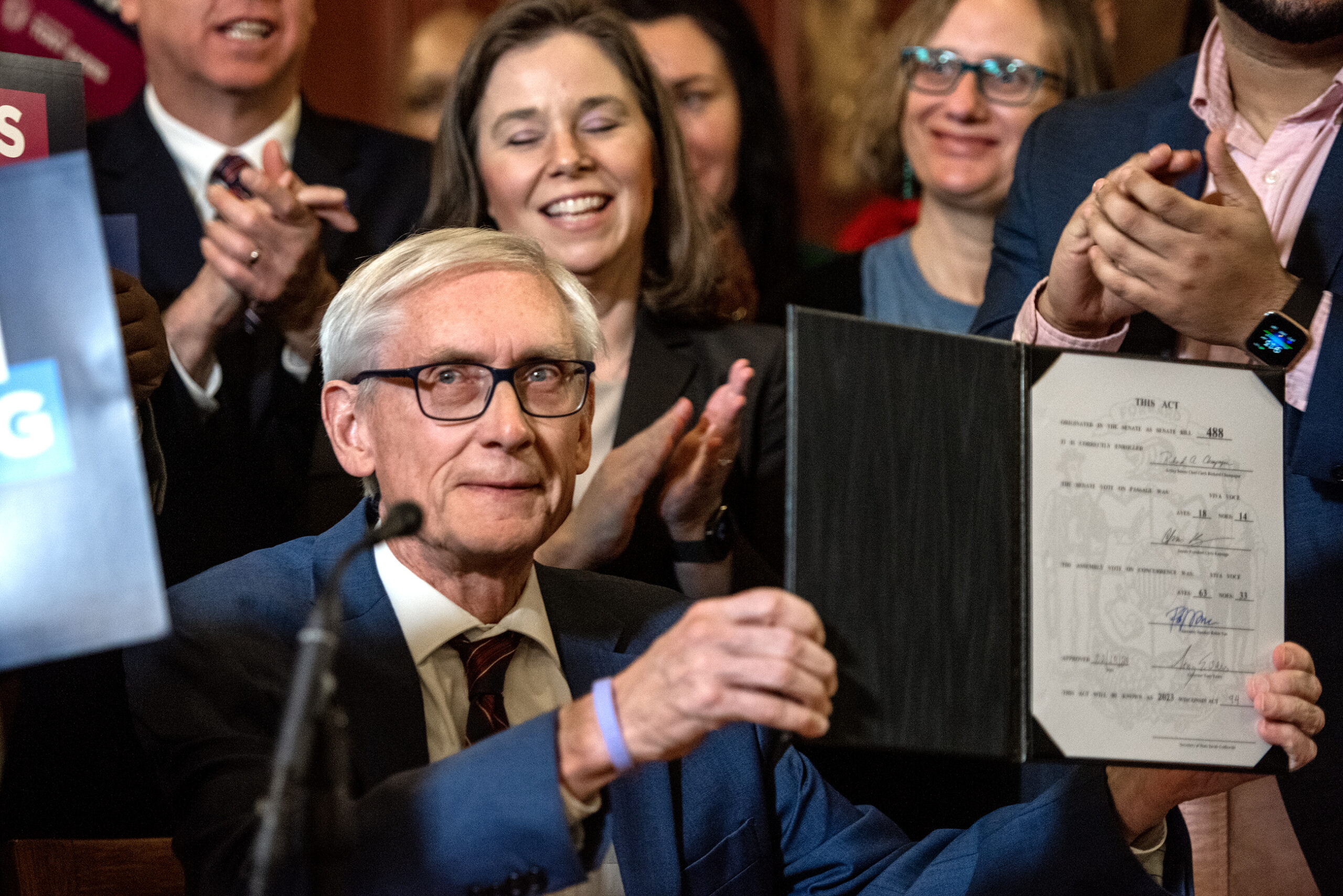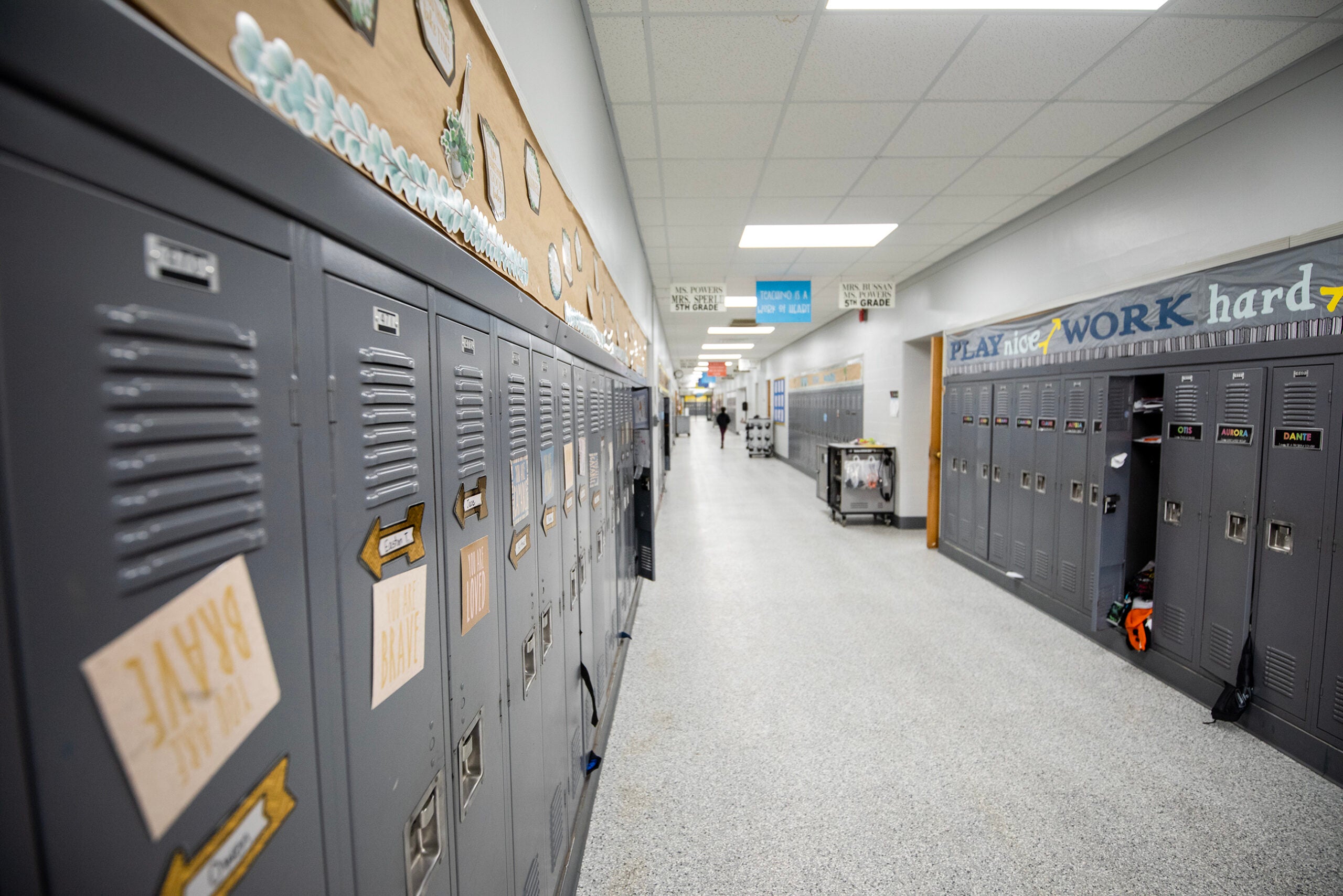Republicans who run the Legislature’s budget committee parted dramatically with Gov. Tony Evers Thursday, passing a K-12 education budget that would spend $1.4 billion less than the governor asked for.
The roughly $150 million they would spend, which includes $128 million in state tax funding, is hundreds of millions less than the increase they supported just two years ago, and it comes at a time when state government’s budget is as flush as it’s been in decades.
It also comes at a time when Wisconsin schools are receiving more federal funding than ever before through three coronavirus relief packages, a total of $2.6 billion that Republicans say reduces the need to spend state funds on schools.
News with a little more humanity
WPR’s “Wisconsin Today” newsletter keeps you connected to the state you love without feeling overwhelmed. No paywall. No agenda. No corporate filter.
“We would be so remiss if we did not account for that money as we move forward,” said Rep. Tony Kurtz, R-Wonewoc. “To me, this is a no-brainer.”
At the same time, the GOP education plan raised the prospect that Wisconsin might not qualify for the federal funds. That’s because one of the conditions of receiving the federal money is that states maintain the amount they spend on education as a percentage of their overall budgets. As of Thursday, the budget crafted by Wisconsin Republicans would fall short.
“You’re not going to get it,” Sen. Jon Erpenbach, D-West Point, told Republicans. “One side of the aisle is not being honest here.”
In largely setting aside the governor’s proposal, Republicans rejected key pillars of Evers’ education budget.
Where Evers would spend about $613 million in state tax funding to increase general school aid, GOP lawmakers would spend nothing, relying on federal funding instead.
Evers also proposed increasing the amount schools can raise through local property taxes by $200 per pupil in the first year of the budget and $204 in the second. Under the GOP plan, those per pupil increases would go away.
Republicans would spend an additional $85 million in state tax funds on special education, which would cover 30 percent of all eligible special education costs by the second year of the budget, up from 28 percent now.
Still, that number was about $624 million less than the proposal from Evers, which would have covered up to 50 percent of eligible special education costs by the second year of the budget.
Rep. Evan Goyke, D-Milwaukee, said there was no excuse for underfunding schools at a time when the state budget was sitting on a roughly $2 billion projected surplus.
“We have the money,” Goyke said. “We have the money to make the investments we need.”
As part of the GOP proposal, Republicans would also set aside $350 million in Wisconsin’s budget stabilization fund, commonly referred to as the state’s “rainy day fund.” While Republicans indicated that the funding could eventually go toward schools, there would be no limits on how a future governor and Legislature could spend the money.
“The money’s going to stay there,” said Sen. Duey Stroebel, R-Saukville. “It’s a safe place to put it.”
GOP Budget Would Reward Districts For In-Person Instruction
In addition to relying on federal funds to pay for education, GOP lawmakers also passed new rules for who would receive it, prioritizing schools that taught kids in person during the pandemic.
Under the GOP motion, about $115 million in federal money from the latest coronavirus relief package would fund per pupil payments of $781 for any districts that provided in-person instruction for at least 50 percent of the 2020-21 school year.
“We wanted to make sure that districts doing the right thing were rewarded,” Stroebel said.
Democrats said Republicans were punishing districts that remained virtual.
“You’re just deciding who’s a winner or a loser because of a political statement of whether you were in person or not,” said Goyke. “I mean, come on. The pandemic happened! Nobody wanted it to happen. Nobody wanted to go virtual. Nobody planned for this to happen. People made the best decisions they could to keep people safe.”
Goyke said that in a densely populated urban district like his in Milwaukee, the combination of lots of kids, staff and older buildings made in-person instruction less safe.
But Sen. Howard Marklein, R-Spring Green, said Milwaukee would receive about $500 million in federal funds from the latest coronavirus bill because the vast majority of the money — 90 percent — was awarded based on a district’s poverty level.
“MPS is going to be just fine, I believe,” Marklein said.
Much of the discussion Thursday centered on whether Wisconsin would even receive the federal funding at the heart of the GOP budget if it doesn’t meet the “maintenance of effort” requirements in the American Rescue Plan signed by President Joe Biden.
“I’m aware of the risk,” Marklein said. “I believe the risk is manageable.”
Marklein suggested that once the federal government heard an outcry from states that the funding was too restrictive, it would likely loosen its requirements. Other Republicans suggested the limits would be struck down by the U.S. Supreme Court.
Democrats called that wishful thinking, telling Republicans that at the end of the day, they were spending far less than Evers wanted on schools.
“You guys are coming in at less than 10 percent of what the governor proposed,” Erpenbach said.
Evers’ office did not immediately comment on the GOP education budget Thursday. While the governor has broad power with his veto pen to reshape the budget, he can’t use it to restore money that’s been taken out.
Evers, who is a former teacher, campaigned on funding schools in 2018, and advocated for increased school funding for years as Wisconsin’s state superintendent of public instruction.
Wisconsin Public Radio, © Copyright 2026, Board of Regents of the University of Wisconsin System and Wisconsin Educational Communications Board.

